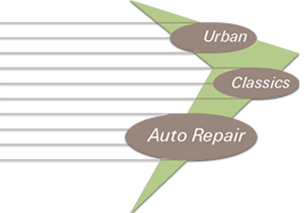Planning a long road trip? Whether you’re driving across the state or cross-country, preparing your car properly is the key to a safe and stress-free journey. A few simple maintenance steps can help you avoid unexpected breakdowns, expensive repairs, and ruined vacation plans. Here’s a helpful checklist from your trusted local auto repair shop to get your vehicle road-trip ready.
1. Check Your Tires
Your tires are literally where the rubber meets the road. Inspect the tread for wear and make sure it’s not too shallow. Uneven wear could mean it’s time for a tire rotation or alignment. Also, check tire pressure: under-inflated or overinflated tires can reduce fuel efficiency and increase the risk of blowouts. Don’t forget to inspect your spare tire, too!
2. Test Your Battery
A dead battery is one of the most common reasons for roadside breakdowns. If your battery is more than three years old, have it tested by our technicians at Urban Classics. Make sure the terminals are clean and corrosion-free. Carrying jumper cables is always smart, just in case.
3. Inspect Brakes
Reliable brakes are a must, especially when you’re driving unfamiliar roads. If you hear squeaking, grinding, or feel vibration when braking, get your brakes checked before you hit the highway. A quick inspection could prevent costly damage or dangerous situations.
4. Check Fluids
Top off or replace essential fluids:
- Engine oil: Make sure you’re not overdue for an oil change.
- Coolant: Keeps your engine from overheating.
- Brake fluid, transmission fluid, and windshield washer fluid: All should be at proper levels.
If you notice any leaks under your car, schedule an inspection right away.
5. Inspect Belts and Hoses
Cracked or worn belts and hoses can fail without warning, leaving you stranded on the side of the road. At Urban Classics, our technicians can check for signs of wear and replace any parts that look questionable.
6. Test Lights and Wipers
Long drives mean changing weather and night driving. Make sure all exterior and interior lights work properly, including headlights, brake lights, turn signals, and hazard lights. Replace worn wiper blades so you’re ready for rain or snow.
7. Pack an Emergency Kit
Even with the best maintenance, emergencies happen. Keep a kit in your trunk with these essentials:
- Jumper cables
- Tire repair kit or sealant
- Flashlight with extra batteries
- First-aid kit
- Bottled water and snacks
- Basic tools and roadside flares or reflective triangles
Schedule a Pre-Trip Inspection
The best way to ensure your vehicle is ready for a long drive is to bring it to our shop in Brooklyn, NY for a thorough pre-trip inspection. At Urban Classics, our experienced technicians will check your car from bumper to bumper, so you can hit the road with confidence.
Ready to travel with peace of mind? Contact us today at (718) 622-8484 to schedule your road trip inspection. Safe travels and happy driving!

